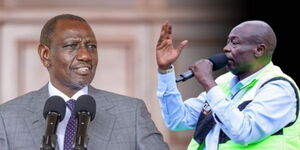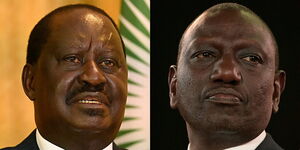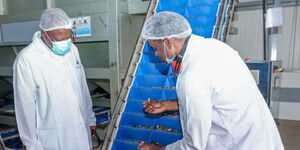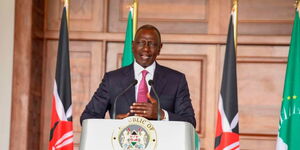The senior economic advisor to the President, Moses Kuria, on Wednesday, January 8, revealed that most of his ideas had been consumed in building Kenya’s economy despite his job being a 'thankless' one.
Speaking during an interview on Citizen TV, he stated that the advisory committee had done well to turn around Kenya's economy from the brink of defaulting on its loans.
“Most of my advice has been taken on board because if you look at the fundamentals of what we have done, two things happened for this country: one, we did not default. Other economies of our standing would have defaulted, especially on external debt,” Kuria stated.
“There were fears that we would default on external debt and our domestic debt, but we did not default.”
Kuria, referring to the fact that Kenya did not default on any of its loans in 2024 despite fears to the contrary, stated that he received no praise from Kenyans despite his policies saving the economy.
“Am I expecting anyone to give us flowers because we did not default? It’s not something we wait for, unfortunately. It is a thankless job,” Kuria said.
“But imagine the converse—the kind of stick we would be getting right now if we had defaulted. It is atrocious.”
The second thing Kuria believes he should have received praise for was reportedly the macroeconomic stabilisation policies applied, which led to outcomes such as low inflation, a strengthened currency against the dollar, and budget reductions.
He likened the state of the Kenyan economy when the Kenya Kwanza government took over to that of a patient needing stabilisation and receiving help from a doctor.
“If a doctor stabilises a patient, not many people will recognise that because the patient is not going out for a game of rugby or golf. All he did was stabilise him,” Kuria said.
Nevertheless, he confirmed that even though he believed the economy had been stabilised, the common mwananchi had no idea that the Kenyan government was about to default on all its loans.
“It is a very difficult phase to live up to because it is very invisible to the common man. They will not understand that we were about to default. They will not understand where inflation was. The common man, who does not export, will not understand that the dollar was once Ksh160 and is now Ksh120.”












